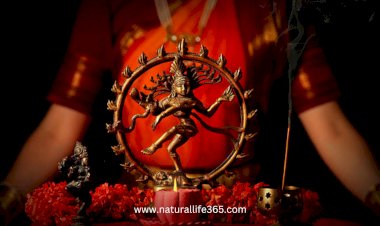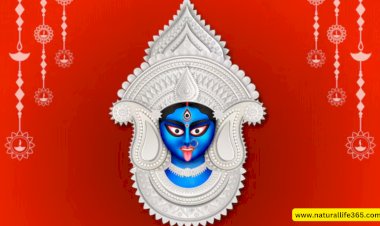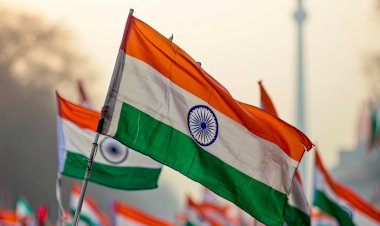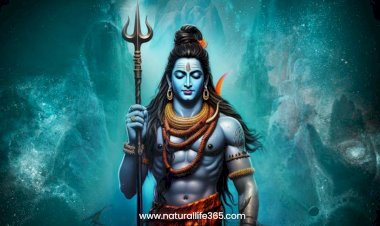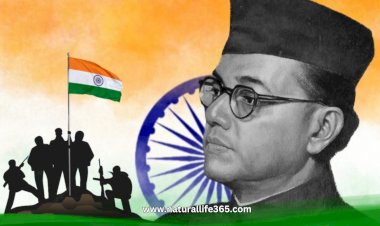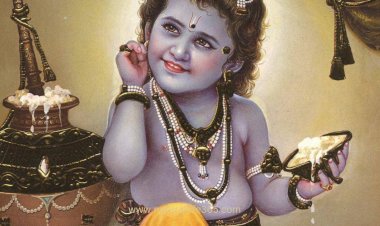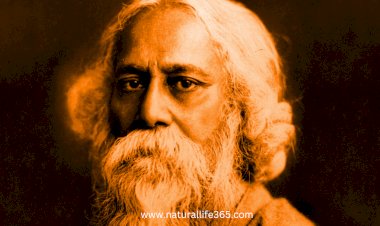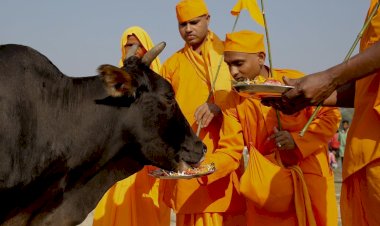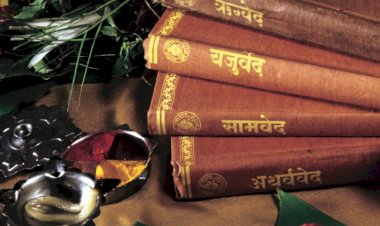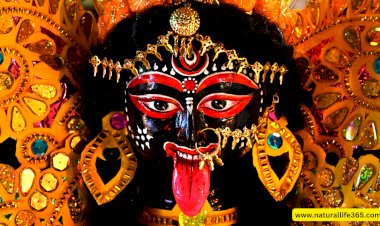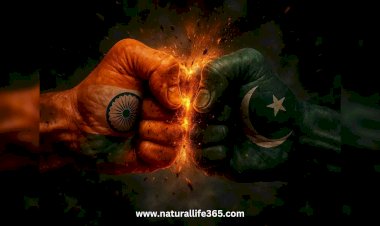What Is The True Meaning Of Diwali?
Uncover Diwali's profound significance in this exclusive guide. Discover the true essence of the festival's traditions and spirituality.
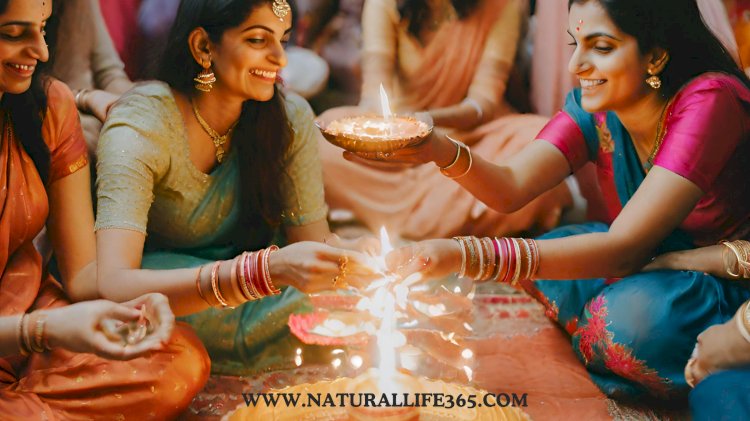
Diwali, the Festival of Lights, is one of the most vibrant and cherished celebrations in the world. A time of joy, togetherness, and dazzling displays of light, it's a festival that transcends borders, cultures, and beliefs. But beyond the radiant lamps and colorful festivities lies a profound meaning that often escapes the modern-day reveler.
On this 2023, Diwali starts on 10 November with Dhanteras, then Diwali on 12 November so in this blog post, we embark on a journey to uncover the hidden gems of this age-old tradition, exploring the historical, spiritual, and cultural dimensions of Diwali. Join me as we dive deep into the heart of this enchanting festival to answer the timeless question: What is the true meaning of Diwali?
Diwali Historical Origins
To understand the true meaning of Diwali, we must first delve into its historical origins. Diwali, also known as Deepavali, has a rich and ancient history that is rooted in Hindu mythology and folklore.
1. The Legend of Lord Rama: One of the most well-known stories associated with Diwali is the return of Lord Rama to Ayodhya after defeating the demon king, Ravana. The people of Ayodhya celebrated his return by lighting oil lamps and bursting fireworks, which is why Diwali is often called "Rama's homecoming."
2. The Tale of Lord Krishna: In some regions of India, Diwali is also celebrated as the day Lord Krishna defeated the demon Narakasura, bringing light and justice to the world. His victory symbolizes the triumph of good over evil.
3. The Worship of Goddess Lakshmi: Diwali is dedicated to the worship of Goddess Lakshmi, the Hindu goddess of wealth and prosperity. It is believed that she visits homes that are clean and well-lit, which is why people clean their houses and light oil lamps during the festival.
4. Harvest Festival: In some parts of India, Diwali marks the end of the harvest season, and farmers offer thanks to the deities for a bountiful harvest. This connection to agriculture and the land adds another layer of significance to the festival.
The historical origins of Diwali vary from region to region in India, and each story adds depth to the festival's meaning. However, the common thread in all these stories is the triumph of light over darkness, knowledge over ignorance, and good over evil.
These historical tales lay the foundation for the spiritual and cultural significance of Diwali, making it a time for reflection, renewal, and inner enlightenment.
What are the Spiritual and Religious Aspects of Diwali
Diwali is not just a visually stunning spectacle; it holds profound spiritual significance for millions of people across the world, particularly within the Hindu, Jain, and Sikh communities. At its core, Diwali represents the victory of light over darkness and good over evil, making it a time for spiritual reflection and inner transformation.
1. Celebration of Inner Light: Diwali reminds us that the true light is the one that shines within. The lighting of lamps (diyas) and candles symbolizes the elimination of ignorance and the awakening of one's inner consciousness. It is a time to seek knowledge and spiritual wisdom.
2. Goddess Lakshmi's Blessings: Diwali is dedicated to the worship of Goddess Lakshmi, the deity of wealth and prosperity. Devotees believe that invoking her blessings during this time will bring material and spiritual abundance into their lives.
3. Fulfillment of Duties: The festival encourages individuals to fulfill their familial and social duties. It's a time to reconcile with loved ones, forgive past grievances, and strengthen the bonds of family and community.
4. Renewal and Reflection: Diwali is a time to introspect, cleanse the mind and spirit, and make resolutions for self-improvement. Many people choose to start new projects, businesses, or learning journeys during this auspicious period.
5. Vigilance Against Evil: The celebration of Diwali is incomplete without the bursting of fireworks. This practice is believed to ward off evil spirits, signifying the triumph of good over malevolence. However, in modern times, there's growing awareness of the environmental impact, leading to eco-friendly celebrations.
6. Charity and Giving: Giving to the less fortunate is an essential part of Diwali. It reflects the spirit of sharing and caring and emphasizes the importance of empathy and charity.
In essence, the spiritual significance of Diwali lies in the pursuit of self-improvement, the search for inner wisdom, and the celebration of the light that resides within each of us. It is a time to reaffirm our commitment to goodness, kindness, and the pursuit of a meaningful and enlightened life.
Explore the Common Rituals and Traditions Followed During Diwali
Diwali is a vibrant tapestry of traditions and rituals that have been passed down through generations. Each family and community might have its unique way of celebrating, but several common rituals and traditions unite the spirit of Diwali. Let's take a closer look at these cherished customs:
1. Cleaning and Decoration: The preparations for Diwali begin with thorough cleaning and decluttering of homes. This ritual symbolizes the removal of negativity and the welcoming of positive energy. After cleaning, houses are adorned with colorful Rangoli patterns, flower garlands, and decorative lights to create an inviting atmosphere.
2. Lighting of Diyas and Candles: The illumination of oil lamps (diyas) and candles is central to Diwali. It signifies the triumph of light over darkness and knowledge over ignorance. Homes, temples, and public places are adorned with these tiny flames, creating a mesmerizing visual spectacle.
3. Puja (Prayer) and Lakshmi-Ganesh Worship: Families come together for special prayers and rituals during Diwali. They offer prayers to Goddess Lakshmi and Lord Ganesh seeking their blessings for a prosperous year ahead. Silver coins and idols of these deities are often used in these ceremonies.
4. Exchanging Gifts: Exchanging gifts is a heartfelt tradition during Diwali. Friends and family exchange sweets, dry fruits, and other presents as a symbol of love and goodwill. It's a way of strengthening relationships and showing appreciation for one another.
5. Crackers and Fireworks: Bursting fireworks is a popular tradition, especially among children. The loud sounds and bright colors are believed to ward off evil spirits. However, there's a growing awareness of the environmental impact of fireworks, leading to a shift towards eco-friendly celebrations.
6. New Clothes and Jewelry: Wearing new clothes and jewelry is customary during Diwali. It symbolizes a fresh start and a new beginning. It's also a way of paying homage to Goddess Lakshmi, who is believed to bless those who are well-dressed.
7. Feasting: Diwali is a time for indulging in delectable food. Families prepare an array of sweets and savory dishes, including laddoos, samosas, and more. Sharing these culinary delights with loved ones is an essential part of the celebration.
8. Community Celebrations: Diwali is not limited to homes. Communities, temples, and even entire cities come alive with celebrations. Cultural programs, dances, music, and fairs are organized to mark the festive occasion.
9. Gifts for the Less Fortunate: As a gesture of goodwill, many families and organizations also distribute food, clothes, and gifts to the less fortunate during Diwali. This act of charity and compassion aligns with the festival's spirit of giving.
These are just a few of the common rituals and traditions that make Diwali a time of joy and togetherness. Each custom holds its own significance and adds depth to the celebration. Diwali is not just a festival; it's a testament to the rich cultural heritage and the spirit of unity that defines India and its people.
Personal Reflections on the True Meaning of Diwali
As we immerse ourselves in the radiant festivities and time-honored traditions of Diwali, it's essential to take a moment for personal reflection. Beyond the grandeur of the lights, the sumptuous feasts, and the camaraderie of family and friends, Diwali offers a unique opportunity to embark on a journey of inner contemplation and self-discovery.
Here are a few aspects of personal reflection that Diwali encourages:
1. Gratitude: Diwali is a reminder of the abundance in our lives. It prompts us to be thankful for the blessings we often take for granted, such as a loving family, good health, and the comforts of our homes. Take a moment to express gratitude for all that you have.
2. Self-Improvement: Diwali's message of light over darkness extends to our own lives. Use this time to reflect on personal growth and self-improvement. What aspects of your life could use more "light"? How can you overcome your personal obstacles and challenges?
3. Reconciliation: The festival emphasizes the importance of resolving conflicts and fostering harmony in relationships. Use this opportunity to reach out to estranged friends or family members, mend broken bonds, and find forgiveness in your heart.
4. Inner Peace: Amid the hustle and bustle of life, Diwali invites us to find moments of inner peace and serenity. Whether through meditation, prayer, or simply taking a break from the chaos, use this time to reconnect with your inner self.
5. Setting Intentions: Just as Diwali marks the start of a new year in some regions, it's a perfect time to set goals and intentions for the year ahead. What do you aspire to achieve in the coming months, both personally and professionally?
6. Spreading Joy: Personal reflection doesn't always have to be an introspective exercise. Consider how you can bring joy and happiness to the lives of others. Acts of kindness and giving can be deeply fulfilling.
7. Cultural Identity: If you have Indian heritage, Diwali is an excellent opportunity to connect with your cultural roots and reflect on what this celebration means to you in the context of your identity.
Diwali, with its spiritual and cultural significance, provides a unique platform for self-discovery and growth. It's a time to look inward, appreciate your journey, and aspire to be a better version of yourself. So, as you partake in the festivities and rituals, remember to set aside a moment for personal reflection and introspection, for it is in the depths of our own hearts that the true light of Diwali shines the brightest.
How Diwali is Celebrated Beyond India's Borders?
Diwali is not confined to the borders of India; it transcends geographical boundaries and has become a global celebration. As the Indian diaspora spreads its cultural richness to all corners of the world, Diwali finds resonance in various countries and communities, each adding its unique touch to this radiant festival.
Here's a glimpse of how Diwali is celebrated beyond India's borders:
1. Fiji: Diwali is a national holiday in Fiji, and the celebrations here are a beautiful fusion of Indian traditions and local culture. The festivities include lighting lamps, wearing new clothes, visiting temples, and sharing traditional sweets.
2. United Kingdom: Diwali is widely celebrated across the UK, especially in cities with a significant South Asian population. Leicester's Diwali celebrations are one of the largest outside India, featuring grand parades, cultural performances, and a spectacular switch-on of lights.
3. United States: Diwali has gained popularity in the United States, with communities hosting public events, cultural shows, and fairs. The White House often holds a Diwali celebration, acknowledging the festival's significance.
4. Canada: Diwali is celebrated with great enthusiasm in cities like Toronto and Vancouver. Cultural organizations and local communities come together to showcase traditional dances, music, and delicious Indian cuisine.
5. Australia: Diwali celebrations have been growing steadily in Australia, with events held in major cities like Sydney, Melbourne, and Perth. These include cultural performances, food festivals, and the lighting of lamps.
6. South Africa: The Indian community in South Africa celebrates Diwali with traditional fervor, including decorating homes, exchanging gifts, and visiting temples. Durban, with its large Indian population, hosts spectacular fireworks displays.
7. Nepal: Diwali, known as "Tihar" or "Deepawali," is celebrated with reverence in Nepal. While the rituals differ slightly from those in India, the essence of the festival remains the same – celebrating light and the victory of good over evil.
8. Trinidad and Tobago: The Diwali celebrations in Trinidad and Tobago are marked by cultural performances, including traditional Indian dances and music. The lighting of deyas (lamps) and the creation of rangoli are prominent customs.
9. Malaysia: In Malaysia, Diwali, known as "Deepavali," is a public holiday. The celebration includes prayers, feasting, and the lighting of oil lamps. It's a time for the diverse Malaysian population to come together in unity.
10. Middle East: The Indian expatriate community in the Middle East, including countries like the UAE, Qatar, and Oman, celebrates Diwali with traditional customs, cultural shows, and the exchange of sweets.
These are just a few examples of how Diwali's vibrant spirit extends beyond India. The festival serves as a bridge between cultures, fostering understanding and unity among diverse communities worldwide. It's a testament to the power of cultural exchange and the universal appeal of light, love, and togetherness – the essence of Diwali that transcends borders and brings people closer across the globe.
As we celebrate Diwali, let's carry its true essence with us not just during this festival but throughout the year. Let the light of Diwali guide us in our daily lives, inspiring us to be better individuals, to spread joy, and to make the world a brighter place. Diwali is not just a festival; it's a way of life, and its true meaning resides in our own actions and intentions.
So, as the diyas flicker, the sweets beckon, and the laughter fills the air, remember that the true meaning of Diwali is a beacon of light that shines eternally in our hearts, reminding us of the goodness that exists within us all.
Wishing you a joyous and spiritually enriching Diwali! ![]()
If you value these free online resources provided by Natural Life 365, please consider supporting my website by sharing the blogs ![]()









